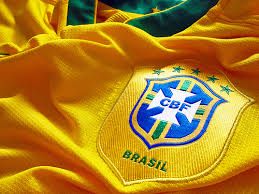By Samindra Kunti
February 26 – Brazilian governing body, the CBF, has released a report highlighting the inequality in wages between football players in Brazil’s domestic game. In 2015, 96 % of Brazil’s football players had a ‘maximum’ salary of just €1,150.
Brazilian football has long been synonymous with the beautiful game. While the Brazilian national team suffered an unforgiving 7-1 semi-finals defeat against Germany at the 2014 FIFA World Cup, Brazilian football largely remains a strong export product for the South American country.
The national team continues to rack up the air miles to play lucrative friendlies around the world and the domestic league remains a breeding ground for talented players. In 2015, 1,212 players left Brazil to ply their trade abroad – 771 did so to play professionally, according to the CBF report. In total, those transfers were worth €156 million.
Yet the domestic game is marred by income inequality, an issue that has a global resonance. US president Barack Obama has repeatedly vowed to combat income inequality, while renowned economist Thomas Pikkety hails it as one of the great problems of our time. In football, FIFA presidential candidate Jerome Champagne has often trumpeted the problem during his media appearances and in his manifestos.
In 2015, a staggering 96% of Brazilian football players earned a meagre ‘maximum’ salary of €1,150. Last year Brazil had 28,203 professionally contracted players, according to the report. An 82.4 % majority of professional players received just up to €230 a month. Brazil’s minimum wage is 880 reias, the equivalent of €202,5.
The elite group of players represented a mere 0.8% of Brazil’s footballing ‘population,’ with salaries from €11,520 upwards. In that top segment, only one player would earn more that 500,000 reias, the equivalent of €115,200, on a monthly basis.
It does serve well to remember that contracts between players and clubs in Brazil are often an amalgam of separate agreements about image rights and other dividends. These income revenues were not included in the CBF’s report.
That, however, doesn’t detract from the precarious situation a lot of Brazilian players find themselves in. A player-run movement Bom Senso FC (Common Sense FC), reminiscent of the ‘Corinthians Democracy’ in the 80’s under the leadership of Socrates and Casagrande, has been campaigning for Brazilian football to be reformed with a specific focus on improving the conditions for the players. Bom Senso enjoys the support of Dida, Gilberto Silva, Juninho, Clarence Seedorf, Cris, Alex Souza and Paulo André.
Contact the writer of this report at moc.l1745641237labto1745641237ofdlr1745641237owedi1745641237sni@i1745641237tnuk.1745641237ardni1745641237mas1745641237`
